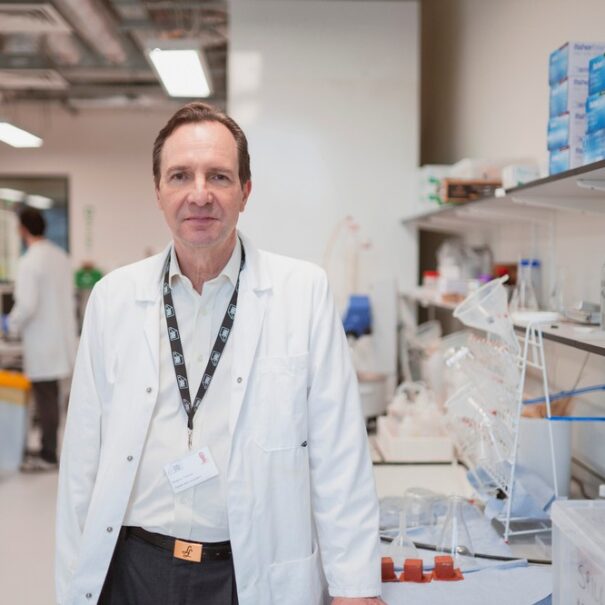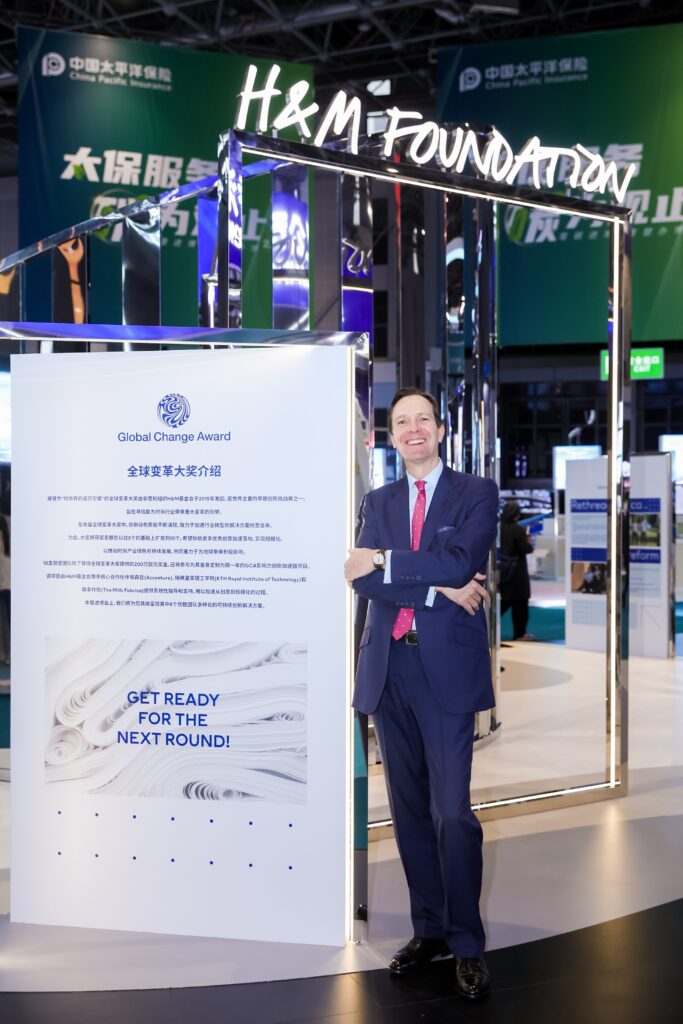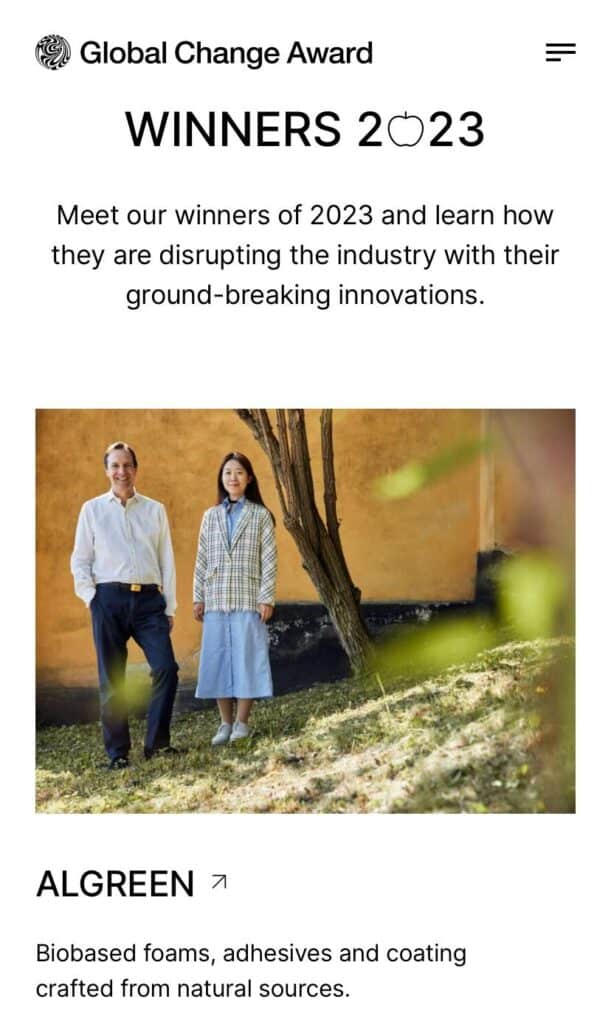
Algreen Blooms Towards A Plastic-Free Future
White City Innovation District’s Algreen is making major strides towards achieving a world-changing ambition: to replace our unsustainable plastics and petrol-based chemicals with transformative bio-based polyurethane.
Today, polyurethanes (PU) represent 8% of the world’s plastics, making them the sixth largest class of chemicals traded globally. Emerging from cutting-edge labs in Imperial White City Incubator at Scale Space, this pioneering start-up has successfully harnessed biotechnology, chemistry and materials science technology advances to develop a sustainable bio-based PU alternative. This landmark innovation has already caught the attention of some of the world’s biggest companies, and Algreen is now commercialising its solution across industries ranging from cosmetics, fashion, packaging and automotive to the medical manufacturing field.
We caught up with Algreen’s COO and Co-Founder Roderick Thackray to find out more about the challenges of polyurethane replacement and discover how Algreen is leading the charge to deliver viable alternative solutions to industry that can eliminate harmful plastics from our environment.
Renewable chemical start-up Algreen is driven by a mission to create sustainable alternatives to polyurethane (PU) – a plastic used in countless everyday products the world over. At the heart of Algreen’s innovation is its groundbreaking bio-based polyurethane, a natural alternative to traditional petroleum and oil-based materials that harm the planet.
The company’s innovative solutions are gaining commercial traction, with multi-national organisations and major global brands now turning to Algreen to help replace the PU in their manufacturing chains and dramatically reduce their environmental footprint. “We believe the impact we can have on the planet is a substantial one,” confirms Algreen COO and Co-Founder Roderick Thackray. “This is the driving force behind all that we do.”
Traditional polyurethane is a highly versatile plastic found in a wide variety of products, including furniture, mattresses, car seats, insulation and shoes. Its ubiquitous use in manufacturing stems from its lightweight, durable and flexible qualities. Making up 8% of global plastics produced today, an estimated 20 million tonnes of polyurethane is generated each year worldwide, significantly contributing to the problem of microplastic and carbon pollution.
Roderick notes: “It’s been claimed that we each consume the equivalent weight of a credit card in microplastics every month, since these plastic particles are too fine to be filtered out. Unfortunately, recycling plastic actually increases its carbon footprint per Kg and only delays the inevitable, as it will ultimately end up in landfill. So, the only real solution is for us all to use less plastic.”
Algreen’s breakthrough has been to develop a 100% natural polyurethane, derived from sustainable building blocks. This novel, fully biodegradable alternative is now being used by the fashion industry for products including fabric glue, apparel coatings, shoe foams, vegan leather and sequins. “Our polyurethane substitute is a fully bio-based alternative that doesn’t rely on oil,” explains Roderick. “One of the additional issues with using oil is the significant energy required to break it down into useful components, so we have been really focused on creating the most decarbonised and sustainable solutions possible to replace these petrol-based chemicals and processes.”


Algreen COO & Co-Founder Roderick Thackray pictured with Algreen CEO & Co-Founder Zee West as they celebrate the team’s Global Change Award win in 2023.
Algreen has also pioneered a replacement for petrochemical formaldehyde, using wastepaper and seaweed to create a sustainable alternative for the production of chipboard for the green furniture industry. Algreen’s biobased polyurethane is currently being developed for further applications, including use in automotive parts and cosmetic ingredients. “The rapidly growing market for bio-based products is being driven by a number of factors, including strong consumer demand and changing legislation. Big brands have big plastic problems that we can help solve,” affirms Roderick.
With the global challenge so immense, news of this exciting solution – and its potential to revolutionise entire industries – has unsurprisingly made a significant impact. In 2023, Algreen was named as a winner of the Global Change Award – a challenge sponsored by H&M Foundation to accelerate innovation in the fashion industry – and highlighted as one of Bloomberg’s UK Startups to Watch for 2024. Last year, the company was nominated for the prestigious Earthshot Prize – the global environmental awards scheme founded by HRH The Prince of Wales – in recognition of its work to develop bio-based alternatives to oil-based plastics and fossil-derived materials.
Underpinning its early success, Algreen credits its presence in the White City Innovation District with providing unique opportunities for collaboration and growth. “Being based here in White City is absolutely invaluable,” Roderick says. “The Imperial network is a globally recognised brand and its support has been incredible. We’re constantly invited to engaging events. The whole White City Innovation District ecosystem has been hugely important to our growth and we’ve become really passionate about giving back to the innovation community that’s supported us.”
“The whole White City Innovation District ecosystem has been hugely important to our growth and we’ve become really passionate about giving back to the innovation community that has supported us.”
Roderick Thackray, COO & Co-Founder, Algreen
Working on a pioneering project that could positively impact the planet is a powerful motivation that unites the Algreen team and as its mission expands, the company is keen to attract more top talent from world-class institutions such as Imperial. Roderick says: “Algreen is building a team of the brightest minds to drive the business forward. We’re always hiring and each year, we look to bring in top PhD scientists. We will continue to handpick the very best talent to support our company growth, creating a team that is truly dedicated to helping solve one of the world’s biggest challenges.”
So, what’s next for this start-up that is making such waves? “We’re on a mission to create a plastic-free future for the world,” Roderick concludes. “To achieve that, in the near future, we’ll be looking to scale up by raising more funding, securing additional lab space and bringing in more exceptional scientists. The demand for our solutions is evident and we’re really excited about the opportunities ahead. We have a pivotal role to play in supporting a diverse range of industries in their transition to sustainability.”
With momentum building and major global brands seeking its expertise, Algreen is setting the world on a course that could one day eliminate plastic pollution for good.
For more information about Algreen and its sustainable, bio-based material solutions – and to explore its current career opportunities – please visit www.algreen.tech.
